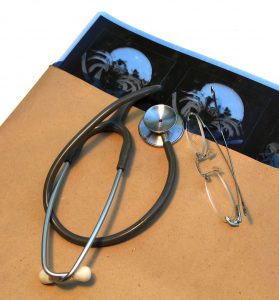 Over the last 16 years I have delivered face to face training to non-clinical staff in primary care. In light of easy access to technology and information on the internet, what are the training needs today for non-medically trained professionals working in close contact with the medical profession?
Over the last 16 years I have delivered face to face training to non-clinical staff in primary care. In light of easy access to technology and information on the internet, what are the training needs today for non-medically trained professionals working in close contact with the medical profession?
What’s required of the role?
The class of 2016 are involved extracting and imputing key medical data from medical notes. Often referred to as note summarising, they scan medical reports onto IT systems and link them to a problem title. Then once this has been done read codes are attached to each medical diagnosis, operation or problem. This process requires clarity and key medical knowledge; it is not enough to record a patient as having had a hysterectomy (uterus removed). There are at least 10 different codes or ways of having a hysterectomy, and it must be correctly coded.
The non-clinical team also update medical summaries as letters arrive from hospital departments. Staff are expected to work with other agencies and need background information to deal with patients, doctors and other multidisciplinary staff.
The medical secretary role includes listening on audio systems to doctor’s transcript of letters in order to type out referral letters correctly. It was widely reported at the time that medical terminology transcription errors were creeping into medical letters that are being transcribed by secretaries. It is also possible that the use of computer spell checkers is leading to some words being replaced by unlikely ones. In one example, the drug “Lansoprazole”, used to treat stomach ulcers, was transcribed as the popular holiday resort “Lanzarote”.
In another case, “phlebitis (vein inflammation) left leg” was changed to “flea bite his left leg”, and a “below knee amputation” was transcribed as “baloney amputation”. One note referred to a patient’s “cute angina” instead of “acute angina”. “Euston station tube malfunction” should have read “Eustachian tube malfunction”.
The problem is that despite ready access to technology and the internet, many people cannot spell medical terminology words correctly.
Read the full article here: Training non-clinical staff in Primary Care:
